
News • Research on physical conditions
Exploring the link between obesity and cancer risk
Why does obesity increase the risk of cancer and possibly metastasis? Researchers in Spain are currently investigating this very question.

Why does obesity increase the risk of cancer and possibly metastasis? Researchers in Spain are currently investigating this very question.

Researchers at Stanford have demonstrated that conditions in the matrix surrounding pancreatic cancer cells impact whether those cells respond to chemotherapy.
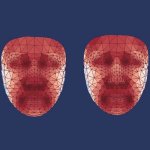
Measuring temperatures in different face regions could be used to earlier detect chronic illnesses, such as diabetes and hypertension. Researchers now show the potential of an AI-based approach.

Integrating bacterial genomic data with detailed human mobility data makes it possible to see how pathogens causing pneumonia and meningitis, move between regions and evolve over time.
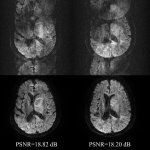
The huge amount of data generated by modern MRI scanners presents challenges in storage, accessibility, and security. To that end, Chinese researchers have developed a cloud MRI system.
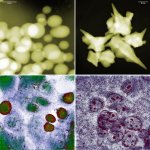
Smaller kills faster – this is what was previously thought about gold nanoparticles used to fight cancer cells. However, new research reveals a more complex picture of these interactions.
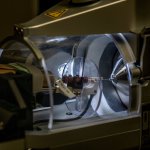
Researchers have developed an AI model that increases the potential for detecting cancer through sugar analyses. The AI model is faster and better at finding abnormalities than current methods.

A new research project focuses on creating a 3D printed device to grow a human spinal cord organoid for the study of spinal cord injury and subsequent drug testing.
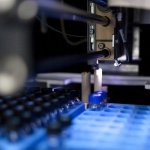
A novel blood test shows promise to predict Parkinson's disease in risk patients up to seven years before the typical motor symptoms appear.

Finnish researchers discovered a mechanism that wakes up dormant breast cancer cells and demonstrated that preventing the mechanism can significantly improve treatment outcomes in experimental models.

A new technique uses brain MRI data to find associations to various behaviors, and then applying predictions from those associations to an independent unseen sample.
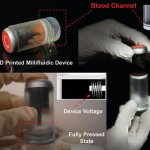
Researchers are proposing a new device that uses blood to generate electricity and measure its conductivity, opening doors to medical care in any location.
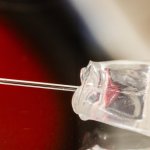
Researchers demonstrated how the growth of malignant brain tumours can be greatly decreased by using iontronic technology to continuously administer low doses of cancer drugs.
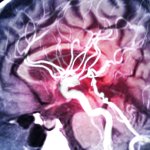
In lab models of stroke, a research team showed that laser therapy improved blood flow in the brain and decreased stroke injury by stimulating the production of nitric oxide.

Scientists discover how the production of antibodies is regulated in allergy and infections. This opens the door to new therapies, without affecting the beneficial response of the immune system.

Using specific radiomics features from 70 characteristics in MRI images, researchers develop an objective method to predict the hearing status of patients with vestibular schwannoma.
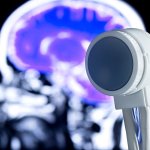
Researchers have developed a technology for targeted stimulation of the brain with ultrasound. This could be used to treat diseases and conditions such as epilepsy, Parkinson’s disease, depression, addiction, and even the aftereffects of stroke.

Charcot-Marie-Tooth disease is often characterized by a duplication of the PMP22 gene. New research assessing the impact on developing Schwann cells could point the way ahead to future therapeutic interventions.
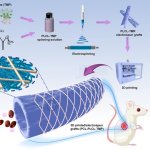
A new 3D graft printing technique offers a potential solution to reduce thrombosis and restrain aneurysmal dilatation post-surgery, with potential for improving cardiovascular disease treatments.
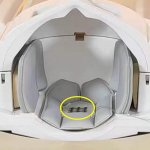
A new prototype self-powered sensor could improve the process of medical imaging for patients and technicians by detecting movement and shutting down an MRI scan in real time.
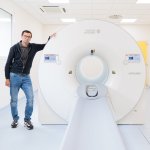
The IRCCS in Bologna has inaugurated a state-of-the-art integrated PET/CT system. This cutting-edge technology allows for the entire human body to be studied in a single scan, even detecting the smallest tumour cells.

A combination of facial thermal imaging and artificial intelligence (AI) can accurately predict the presence of coronary artery disease (CAD), new research finds.
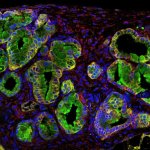
Pancreatic cancer stem cells exploit an antibacterial protein to evade the immune system. Removing this protein could pave the way to more effective immunotherapy, new research suggests.
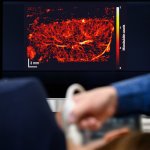
Microbubbles in a contrast agent allows for ultrasound imaging of the finest vascular details. This is the working principle of a technique called ultrasound localization microscopy (ULM).

Acute myeloid leukaemia (AML) is a common type of blood cancer in childhood and can be diagnosed within a few months of life. New research shows that its origins can be traced back to before birth.